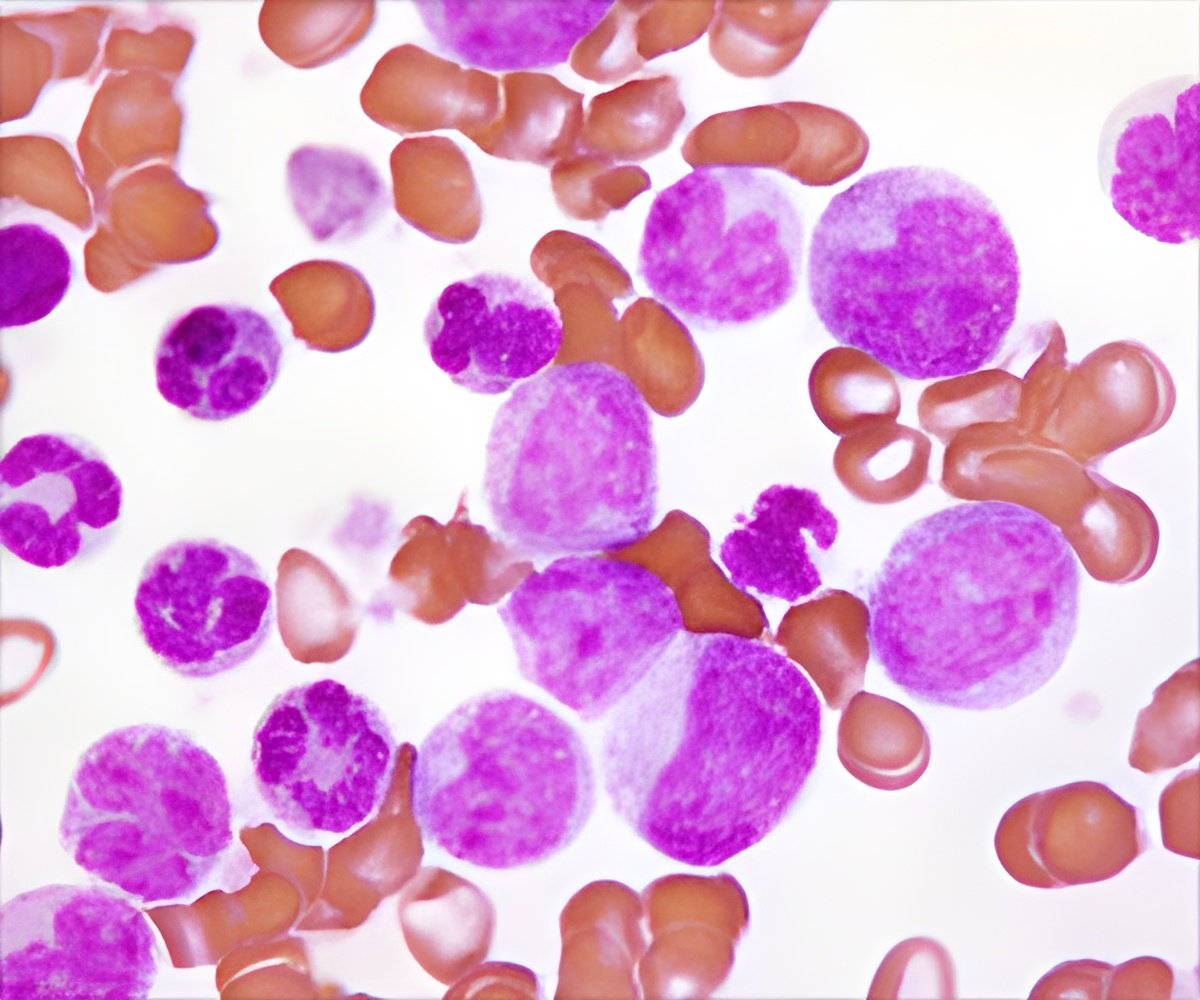Patients of Asian ancestry have poor tolerance to drugs used to treat acute lymphoblastic leukemia while it is commonly used in Europe and the U.S.

TOP INSIGHT
Variations in a particular gene, NUDT15 alters the body's reaction to anti-cancer drugs and causes toxicity in the body.
Scientists discovered four inherited variations in the NUDT15 gene that alter thiopurine metabolism and leave patients particularly sensitive to the drugs and at risk for treatment-disrupting toxicity. One in three Japanese patients in this study carried the high-risk variations. Evidence suggests that the variations are also common in other populations across Asia and those of Hispanic ethnicity.
Researchers demonstrated that the NUDT15 enzyme helps to balance thiopurine activity by reducing the supply of the active drug metabolite that triggers cell death. This check-and-balance mechanism helps to prevent the excessive death of white blood cells that put patients at high risk for infections and other serious complications. Scientists showed the high-risk NUDT15 variants cause a 74.4 to 100 percent loss of NUDT15 function and a toxic build-up of the drug at standard doses.
"This study is key to the development of more effective, personalized ALL therapy because it provides a clear explanation of how variations in the NUDT15 gene change drug metabolism and cause toxicity in patients," said Jun J. Yang, Ph.D., an associate member of the St. Jude Department of Pharmaceutical Sciences.
"We are planning clinical studies to move these findings from the laboratory to the clinic with the hope to guide individualized therapy in the future," Yang said.
In 2015, Yang and his colleagues published evidence linking a NUDT15 variant to reduced tolerance of mercaptopurine and reported the variant was more common in patients of East Asian ancestry. "While it was clinically recognized that patients of Asian ancestry often cannot tolerate mercaptopurine dosages commonly used in the U.S. and Europe, the pharmacological basis was unknown," said study author Ching Hon-Pui, M.D., chair of the St. Jude Department of Oncology.
In this work, researchers identified three additional NUDT15 variants that were associated with reduced enzymatic activity. Humans inherit two copies of each gene, one from each parent. Working in the laboratory, scientists reported that all four of these NUDT15 variants were associated with lower levels of enzymatic activity and imbalance of thiopurine metabolism.
Researchers checked patients enrolled in this study and found that the NUDT15 variants predicted enzyme activity and mercaptopurine tolerance. In Singapore and Japan, for example, patients with the two highest risk variants had the lowest level of enzyme activity.
"These patients had excessive levels of the active drug metabolites per mercaptopurine dose, which suggests we may reduce the drug dose to achieve the level necessary to kill leukemia cells without causing toxicity," said Yang, adding that the NUDT15 variants have no other known health consequences so far.
The scientists checked leukemic cells from 285 children newly diagnosed with ALL and found those with NUDT15 variants were also more sensitive to thiopurines. We can screen for NUDT15 variants and potentially to plan mercaptopurine doses according to each patient's genotype before the therapy starts.
This way, we hope to avoid toxicity without compromising treatment effectiveness," Yang said, adding that the findings may also benefit patients prescribed the drugs for inflammatory bowel diseases, such as those with ulcerative colitis and Crohn's disease.
The researchers also cautioned that future studies are needed to figure out exact thiopurine doses needed for patients with different NUDT15 variants.
Meanwhile, the search continues for variants in NUDT15 or other genes that influence chemotherapy effectiveness and safety. The NUDT15 and TPMT variants could not fully explain why Guatemalan patients in this study tolerated the lowest doses of mercaptopurine.
Source-Eurekalert
 MEDINDIA
MEDINDIA



 Email
Email










